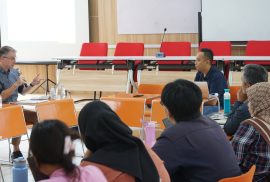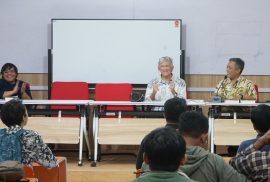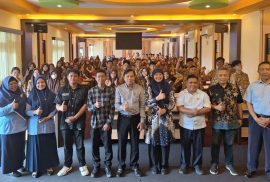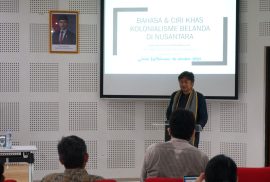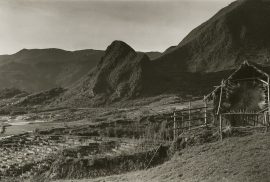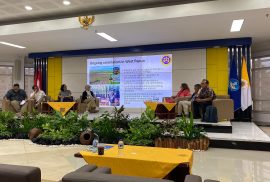On Thursday, November 27, 2025, the Master’s Program in History at Universitas Gadjah Mada (UGM) organized a masterclass and student colloquium focusing on themes and issues in cultural studies. The event was attended by graduate students in History who share a strong interest in exploring cultural dimensions within Indonesian historiography.
The session featured Dr. Abdul Wahid, M.Hum., M.Phil., and Joss Wibisono, both lecturers and guest faculty at the Department of History, UGM. They actively engaged with the students, offering feedback, constructive criticism, and scholarly insights on the research topics presented. In addition, Dr. Arnout van der Meer, a historian and researcher from Colby College, United States, joined the event to provide further advice and perspectives to the participating students.

